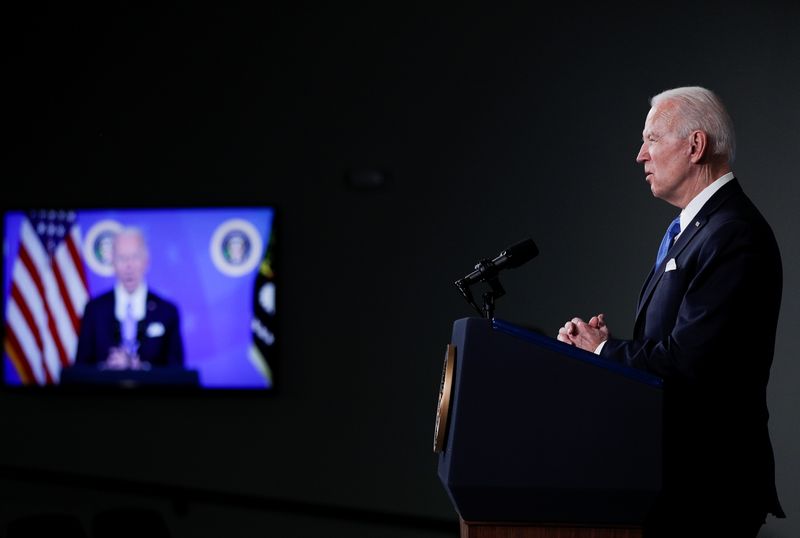WASHINGTON (Reuters) - The U.S. government will first give Americans COVID-19 vaccines, but any surplus would be shared with the world, President Joe Biden said on Wednesday after earlier announcing plans to procure an additional 100 million doses.
"We're going to start off and ensure Americans are taken care of first, but we're then going to try to help the rest of the world," Biden told reporters following an earlier announcement to secure more vaccines with the chief executives of Johnson & Johnson (NYSE:JNJ) and Merck.
"If we have a surplus, we're going to share it with the rest of the world," Biden said, adding that the United States had already committed to providing $4 billion to the COVAX global initiative to distribute vaccines in developing countries.
The Democratic president said it was clear that the pandemic would not be over until it was ended everywhere.
"We're not going to be ultimately safe, until the world is safe," he said.
White House Press Secretary Jen Psaki told reporters that Biden was deeply focused on expanding global vaccinations, but the U.S. government was pushing to first ensure sufficient doses for people in the United States who wanted to get vaccinated.
She said Biden was discussing the need to ensure vaccines got to developing countries with his counterparts, but gave no details.
The United States, Britain, European Union nations and other richer members of the World Trade Organization (WTO) on Wednesday blocked a push by more than 80 developing countries to waive patent rights in an effort to boost production of COVID-19 vaccines for poor nations.
South Africa and India are leading the push for a temporary waiver of the rules of the WTO's Trade-Related Aspects of Intellectual Property (TRIPS) agreement, a move that could allow generic or other manufacturers to make more vaccines.

Western nations argue that protecting intellectual property rights encourages research and innovation, and suspending those rights would not result in a sudden surge of vaccine supply.